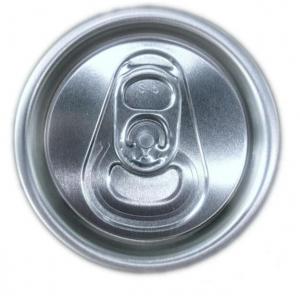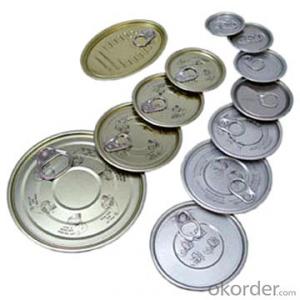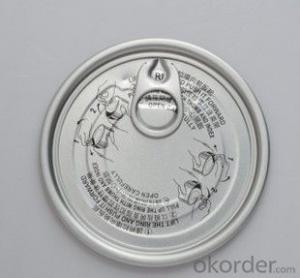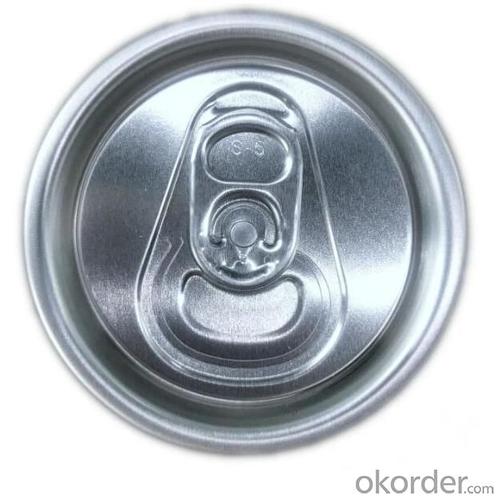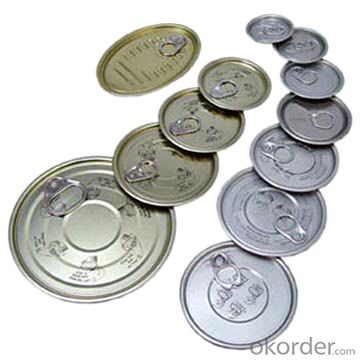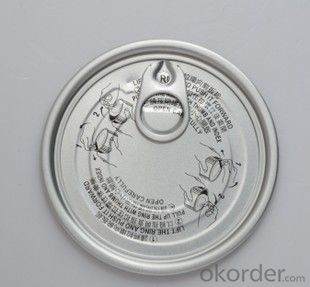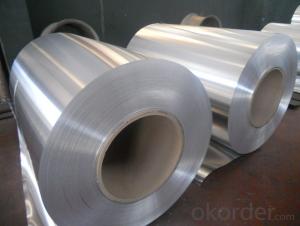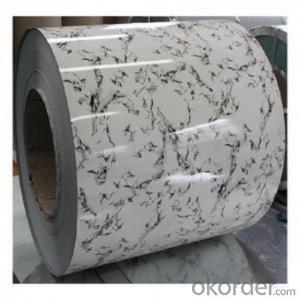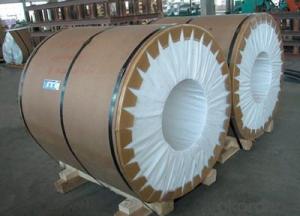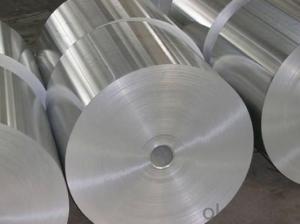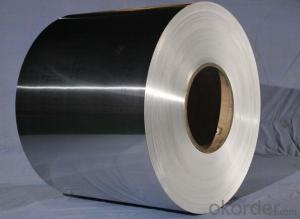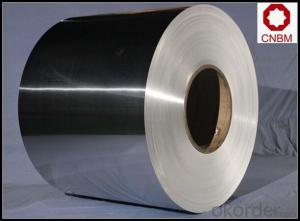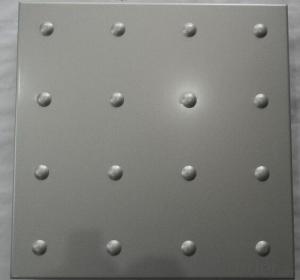Mill Finished Aluminium Coil for Can End
- Loading Port:
- China main port
- Payment Terms:
- TT or LC
- Min Order Qty:
- 100000 PCS
- Supply Capability:
- 10000000 PCS/month
OKorder Service Pledge
OKorder Financial Service
You Might Also Like
Specification
1.Specification
ALLOY:AA5182,AA5052
TEMPER:H19, H29
THICKNESS:0.22-0.26mm
WIDTH:600-1800mm
Special specification is available on customer's requirement
2.Description
5182 and AA5052 aluminum coil is an aluminum alloy that is commonly used in the production of can end. This aluminum alloy is ideal for the production of can end materials due to its excellent formability and corrosion resistance.
3.Pictures
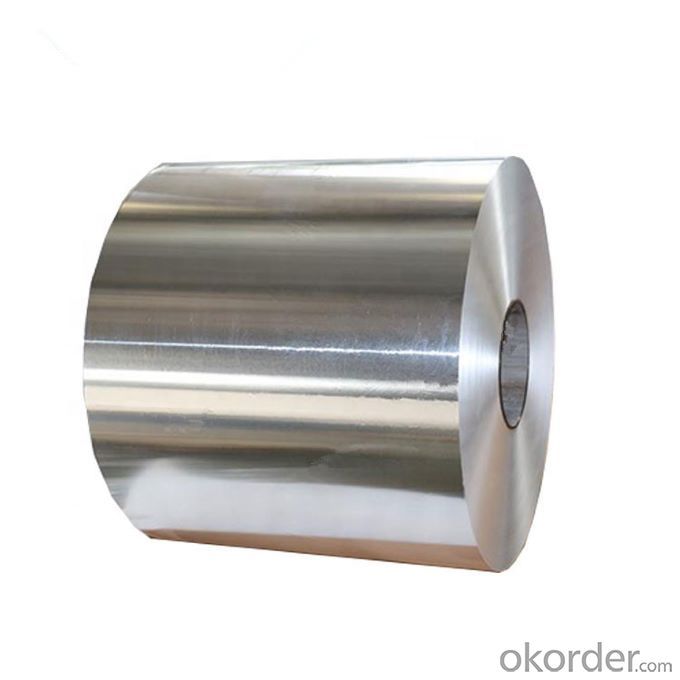
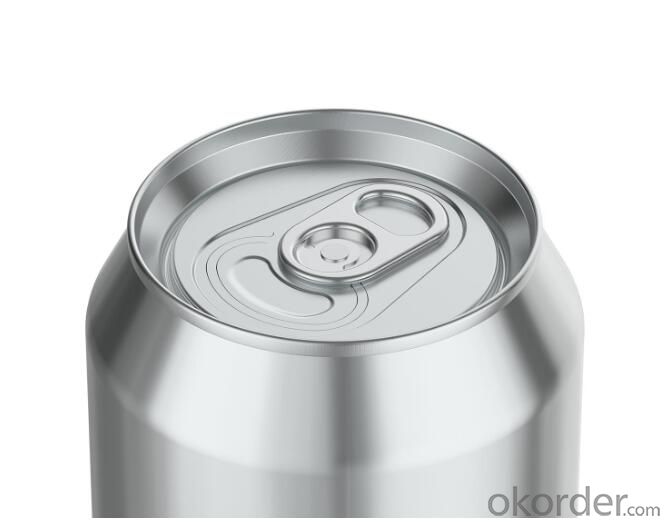
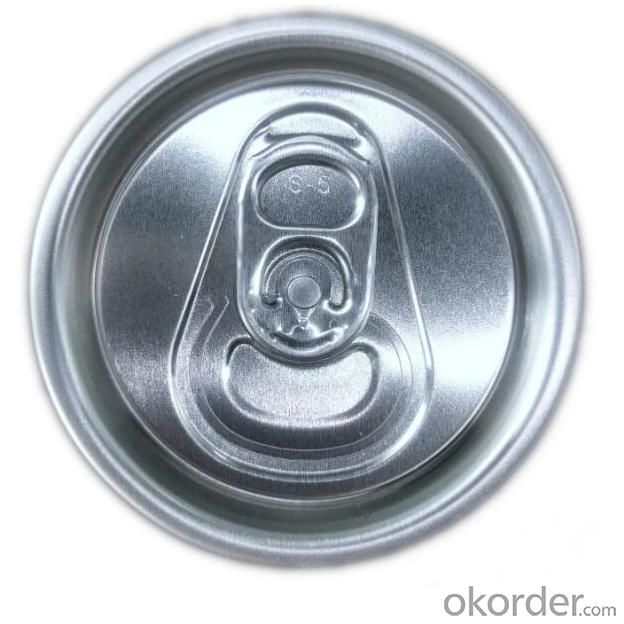
4.Professional Quality Control Team
Inspect ingot before melting
Inspecting aluminium coil /foil stock before cold rolling
Inspecting finished goods before package
Inspecting package, loading before shipment
5.Certificates
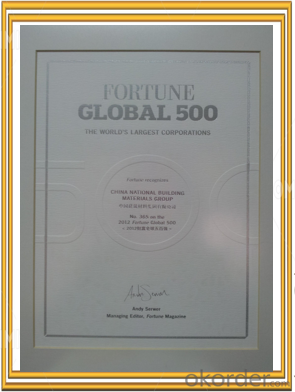
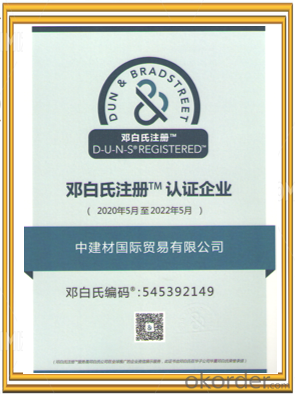
- Q: What are the potential applications of embossed aluminum coils?
- Some potential applications of embossed aluminum coils include roofing and cladding for buildings, decorative elements for interior design, automotive trim and accents, signage and advertising displays, and packaging materials for food and beverage industries. The embossed pattern on the surface of the aluminum coils provides not only aesthetic appeal but also increased durability, corrosion resistance, and anti-slip properties in certain applications.
- Q: like i need a good slogan for aluminum its for a school project like for arsenic's is Arsenic's a sure fire way to deal with a rat, It works better than a mean old cat!
- Aluminum: Keeping stoners amazed for over 50 years!
- Q: 0.6mm insulation aluminum coil price insulation aluminum coil where to buy the most assured?
- Best site inspection, and now more factories, quality uneven
- Q: Can aluminum coils be used in the production of aluminum foam panels?
- Yes, aluminum coils can be used in the production of aluminum foam panels. Aluminum foam panels are typically made by injecting a foaming agent into molten aluminum, which causes the aluminum to expand and form a foam structure. This foam is then solidified and can be further processed into panels. Aluminum coils are commonly used in various industries, including construction, automotive, and packaging, due to their excellent properties such as lightweight, high strength, corrosion resistance, and thermal conductivity. These properties make aluminum coils suitable for use in the production of aluminum foam panels. To produce aluminum foam panels, the aluminum coil can be processed into a flat sheet or strip, which is then cut into the desired size and shape for the panels. The flat aluminum sheet or strip can be easily handled and processed during the foam production process. The foam-forming agent can be introduced into the molten aluminum, and the expanding aluminum foam can be poured onto the flat sheet or strip to form the panels. The use of aluminum coils in the production of aluminum foam panels allows for efficient manufacturing processes, as the coils can be easily rolled, shaped, and cut to meet specific design requirements. Additionally, the use of aluminum coils ensures that the foam panels maintain the desirable properties of aluminum, such as strength, durability, and light weight. Overall, aluminum coils can be effectively used in the production of aluminum foam panels, providing a versatile and cost-effective solution for various applications, including insulation, sound absorption, and structural components.
- Q: What are the potential applications of brushed aluminum coils?
- Brushed aluminum coils have a wide range of potential applications across various industries. The distinct brushed finish of these coils makes them an attractive choice for both aesthetic and functional purposes. Here are some potential applications: 1. Architectural applications: Brushed aluminum coils can be used in architectural projects such as building facades, interior wall cladding, and decorative elements. The brushed finish adds a sleek and modern look, enhancing the overall design of the structure. 2. Automotive industry: Brushed aluminum coils can be used in the automotive industry for various purposes. They can be used for interior trim, such as dashboard panels, door handles, and decorative accents. The brushed finish adds a luxurious touch to the interior of vehicles. 3. Electronics and appliances: These coils can be used in the manufacturing of electronic devices and appliances. They are commonly used for the production of laptop casings, smartphone covers, and household appliances like refrigerators, ovens, and microwave panels. The brushed finish provides a stylish and durable surface. 4. Signage and displays: Brushed aluminum coils are often used in signage and display applications. They can be used for creating outdoor and indoor signs, channel letters, and exhibition displays. The brushed finish gives these signs a professional and eye-catching appearance. 5. Furniture and interior design: Brushed aluminum coils can be utilized in the furniture industry for various purposes. They are commonly used for creating furniture pieces like tables, chairs, and cabinets. The brushed finish adds a contemporary and sophisticated touch to the furniture design. 6. Packaging industry: Brushed aluminum coils can also find applications in the packaging industry. They can be used for packaging of high-end products like perfumes, cosmetics, and premium food items. The brushed finish gives the packaging a premium and luxurious appearance. 7. Industrial applications: These coils can be used in various industrial applications, such as manufacturing equipment, machinery, and industrial tools. The brushed finish provides durability, corrosion resistance, and a professional appearance. Overall, the potential applications of brushed aluminum coils are vast and diverse. From architecture to automotive, electronics to furniture, and packaging to industrial sectors, their versatility, durability, and aesthetic appeal make them a popular choice in multiple industries.
- Q: What are the different coil slitting methods for aluminum coils?
- There are several coil slitting methods for aluminum coils, including rotary shear slitting, loop slitting, and double knife slitting. Each method offers its own advantages and is suitable for different applications.
- Q: How are aluminum coils used in rainwater harvesting systems?
- Aluminum coils are commonly used in rainwater harvesting systems as a key component of the gutter system. These coils are used to channel and collect rainwater from the roof into the storage tanks or barrels. The coils, often placed along the edges of the roof, help in directing the flow of water into the gutters, ensuring efficient collection and storage of rainwater for various purposes such as irrigation or household use.
- Q: How are aluminum coils used in the production of heat sinks?
- Aluminum coils play a vital role in the production of heat sinks due to their excellent thermal conductivity and malleability. Heat sinks are designed to dissipate the excess heat generated by electronic components such as processors, integrated circuits, and power transistors. By utilizing aluminum coils in the manufacturing process of heat sinks, several key advantages are realized. Firstly, aluminum coils possess high thermal conductivity, which allows for efficient transfer of heat from the electronic component to the heat sink. This is crucial for maintaining the optimal operating temperature of the electronic device, as excess heat can cause performance degradation and even permanent damage. The high thermal conductivity of aluminum ensures that the heat is rapidly dissipated away from the electronic component, preventing overheating. Secondly, aluminum coils are highly malleable, making them easy to shape and mold into various designs required for heat sinks. Heat sinks are available in different sizes and shapes, with the most common being finned heat sinks. The fins on the heat sink increase the surface area, allowing for greater heat dissipation. Aluminum coils can be easily formed into these fin shapes, enabling the heat sink to effectively release heat into the surrounding environment. Additionally, aluminum coils are lightweight and corrosion-resistant, making them ideal for use in heat sinks. The lightweight nature of aluminum ensures that the heat sink does not add significant weight to the electronic device, which is especially important in applications where weight restrictions are crucial, such as aerospace or portable electronics. Moreover, the corrosion-resistant properties of aluminum ensure the longevity and durability of the heat sink, even in harsh environments. In conclusion, aluminum coils are essential components in the production of heat sinks due to their high thermal conductivity, malleability, lightweight, and corrosion-resistant properties. By incorporating aluminum coils into the manufacturing process of heat sinks, efficient heat dissipation and improved performance of electronic components can be achieved, ultimately prolonging the lifespan of electronic devices.
- Q: Today at my school I was messing with this sketch thingy, the one with 2 knobs to twist up or down to draw, my friend decided to break it and when we broke it, this silver dust called aluminum powder got on my hands, I never knew it was dangerous cause your see, we never read the manual we just found it. About 3 minutes later he pointed to my hand and I saw blood. It kinda stung.
- The aluminum powder found in an Etch-a-Sketch will not cut you, it's much too small. In fact it's so small you could only see it's edges under a high powered microscope. The cut was most likely caused by jagged glass/plastic when you broke the Etch-a-Sketch open. It's not unusual to cut yourself and not realize until someone else sees you're bleeding.
- Q: What are the common surface finishes for aluminum coils in the aerospace industry?
- Some common surface finishes for aluminum coils in the aerospace industry include anodizing, chromate conversion coating, and primer coating. Anodizing is a process that creates a protective oxide layer on the surface of the aluminum, providing enhanced corrosion resistance and durability. Chromate conversion coating, also known as chemical film coating, forms a thin layer on the aluminum surface that provides corrosion resistance and improves adhesion for subsequent coatings. Primer coating is typically applied on top of anodizing or chromate conversion coating to provide additional protection and enhance the adhesion of subsequent paint layers. These surface finishes are important in the aerospace industry as they help to protect the aluminum coils from corrosion and ensure their longevity in harsh environments.
Send your message to us
Mill Finished Aluminium Coil for Can End
- Loading Port:
- China main port
- Payment Terms:
- TT or LC
- Min Order Qty:
- 100000 PCS
- Supply Capability:
- 10000000 PCS/month
OKorder Service Pledge
OKorder Financial Service
Similar products
Hot products
Hot Searches
Related keywords
